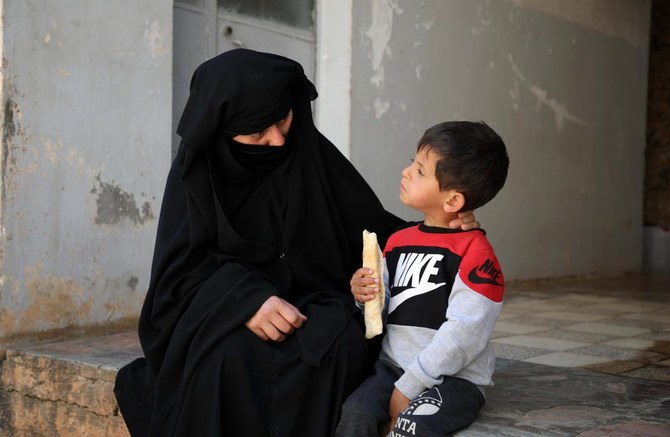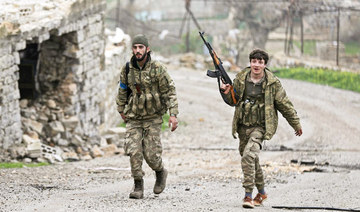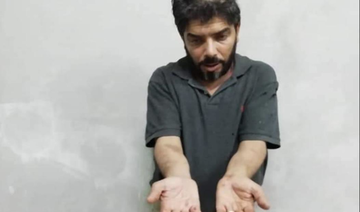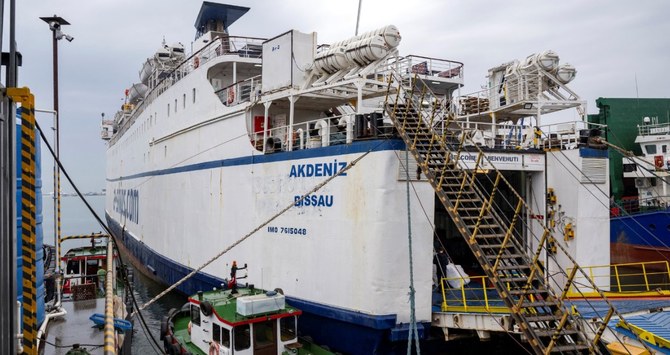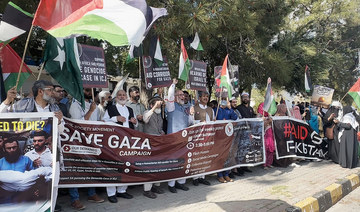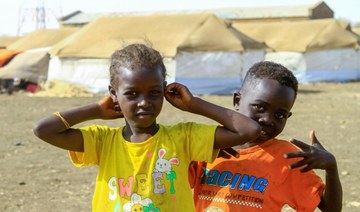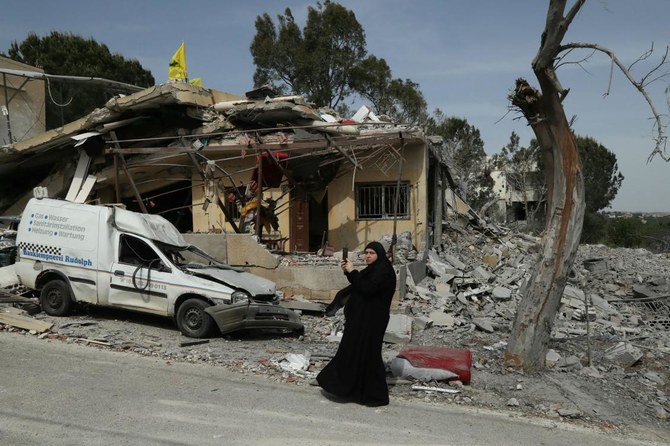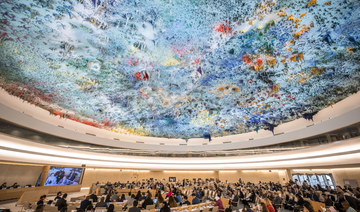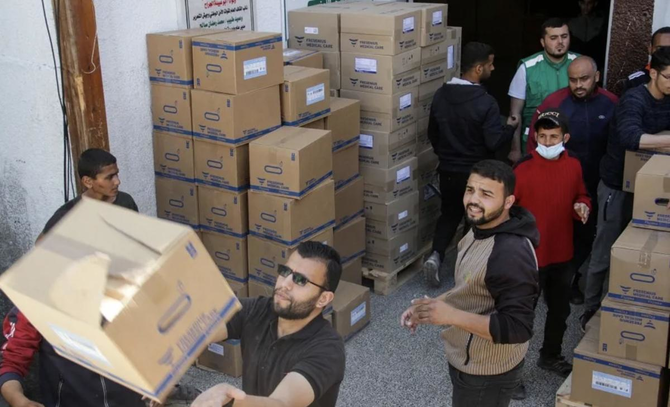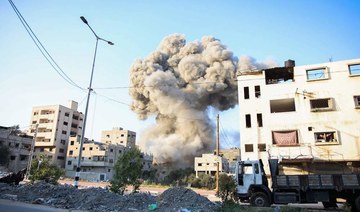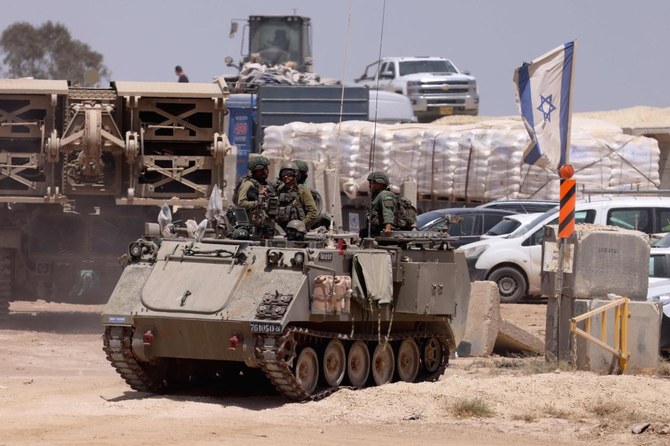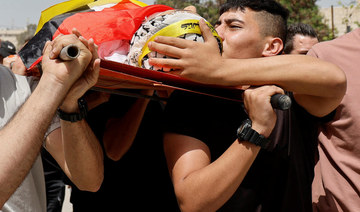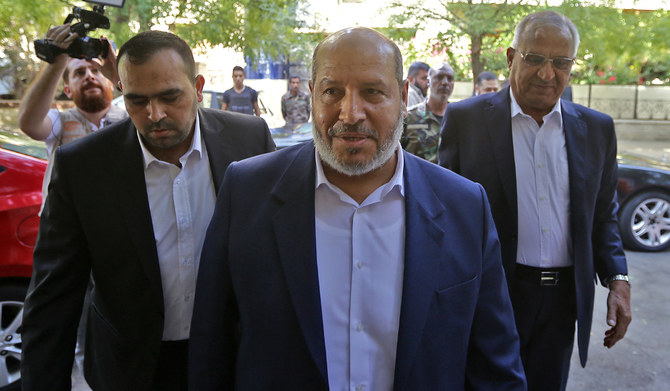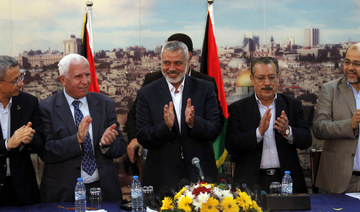MAARAT MASRIN, Syria: After giving birth and raising a toddler during four years in a Syrian prison, 30-year-old Hasna Dbeis is now free — and determined to forge a new life for her family.
Dbeis says she was two months pregnant when she was detained in August 2014 in the Eastern Ghouta suburbs of Damascus, accused of working with rebels; an allegation she denies.
She was shuffled around various detention centers, including one where she saw her father and brother for the last time.
“They were tortured in front of me,” she told AFP, her face veil revealing tired eyes.
She is one of tens of thousands of Syrians jailed during the conflict for opposing President Bashar Assad.
The Britain-based Syrian Observatory for Human Rights says around 200,000 people have gone missing since the civil war started in 2011.
Nearly half are believed to be held in government jails.
Dbeis said she was kept in solitary confinement for 40 days at one stage, in a cell littered with garbage.
Insects crept up the walls, and the screams of inmates being tortured rang around her, she recalled.
She was allowed out of jail only once, when she went into labor.
“A newborn came into my life and I didn’t know what to do,” she said, clad in black.
After giving birth to Mohammad, Dbeis was transferred to the notorious Al-Fayhaa prison in Damascus.
The facility housed other mothers, including Iraqi women detained on suspicion of working with the Islamic State jihadist group, she said.
Dbeis shared a cell with her newborn and a 20-year-old Ethiopian woman.
Her cellmate, who other inmates called Lamees, would help her sew clothes for the little boy, she said, but also care for the infant when Dbeis was being interrogated.
Guards usually entered her cell at around midnight to take her to another room where she was beaten and suspended by the wrists, she said.
The first time, she recounted, “the interrogator started by taking off my veil. He looked at my hair, brought a knife, and started cutting” it.
“Then he started beating me,” she said.
Her hands were cuffed behind her back, she said, and she was left hanging from her wrists for hours.
She also contracted tuberculosis, she claimed, and had to be kept away from her child for more than four months while she received treatment.
By the time she recovered, her son — then nine months old — thought Lamees was his mother.
“He didn’t know who I was,” Dbeis said.
For three years, her hope for a better life dwindled, as she watched Mohammad grow up in a cell, the sound of other children playing echoing in from outside.
“I used to dream of walking in the street with my child and entering a store to buy him clothes like normal mothers do,” she said.
In April 2018, she was released.
She did not return to Eastern Ghouta, which had fallen under government control that month, after regime bombardment and a crippling siege.
Instead, she boarded a bus that took rebels and their families from the Damascus suburbs to opposition-held territory in the northern province of Aleppo.
Dbeis remembers the first time Mohammad saw a stand selling tomatoes.
“He ran toward it, grabbed a tomato, and started gobbling it up,” she said.
“He’d never seen a tomato before.”
But catching up with one of her sisters in the neighboring province of Idlib brought new trauma.
Dbeis was told that her mother was dead and that her husband had been killed by regime forces.
Two of her sisters were detained by the government, and the fate of her father and brother — who she last saw in jail — was unknown.
“After hearing about my family’s heart-wrenching fate, I decided to start a new life,” Dbeis said.
She remarried and moved to Idlib, a region outside regime control ruled by Syria’s former Al-Qaeda affiliate.
But four months after her wedding, her 25-year-old husband was hit in the stomach by shell shrapnel, leaving him unable to work.
In a desperate bid to provide for her family, she joined a sewing workshop employing former female detainees.
“The money I make, I spend on my home,” said Dbeis, who makes children’s clothes.
But her life is under renewed threat.
Since late April, heightened bombardment of Idlib by the regime and its ally Russia has sparked fears of an imminent full assault against the jihadist stronghold.
“I don’t want the regime to enter Idlib and throw me back in prison,” Dbeis said.



